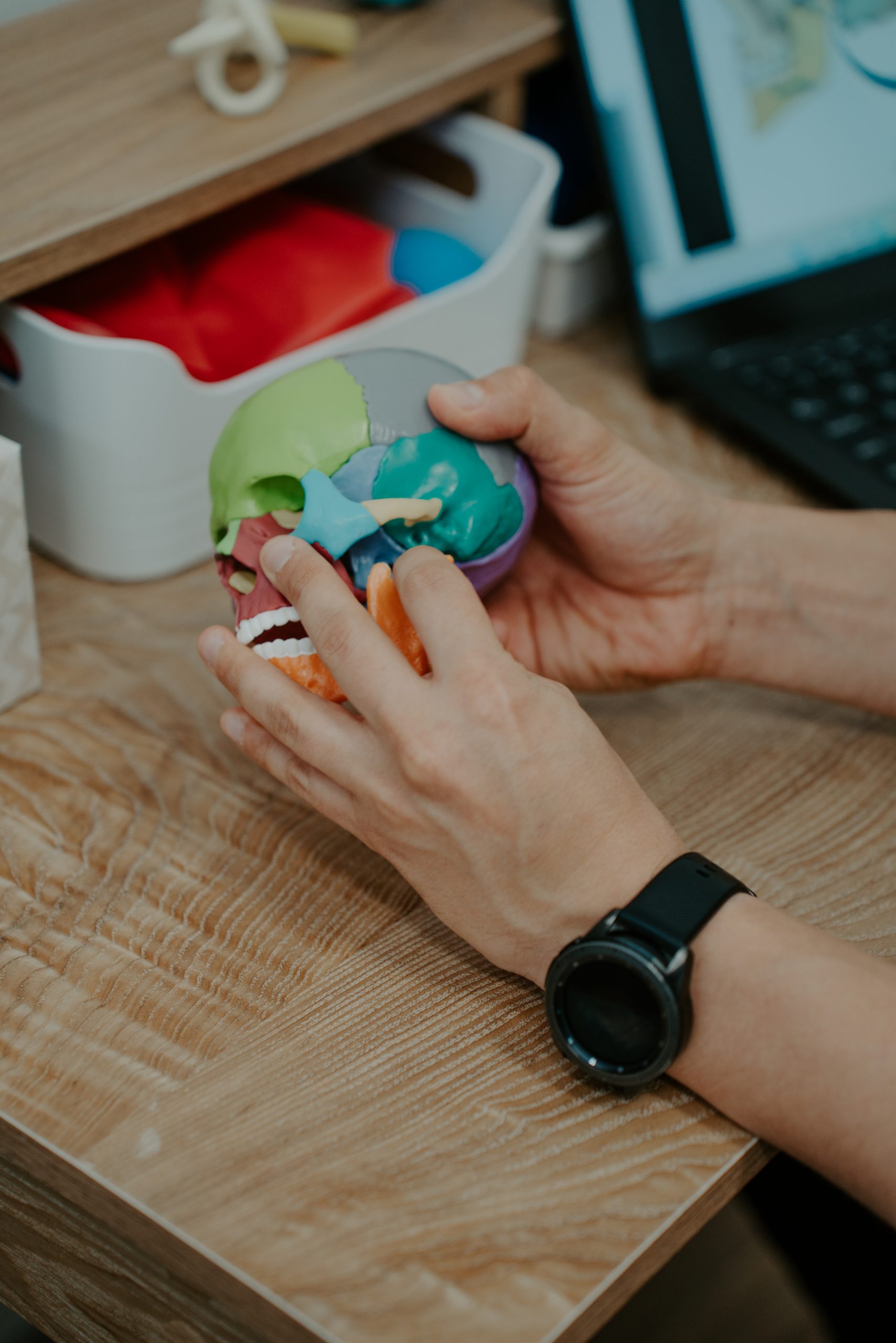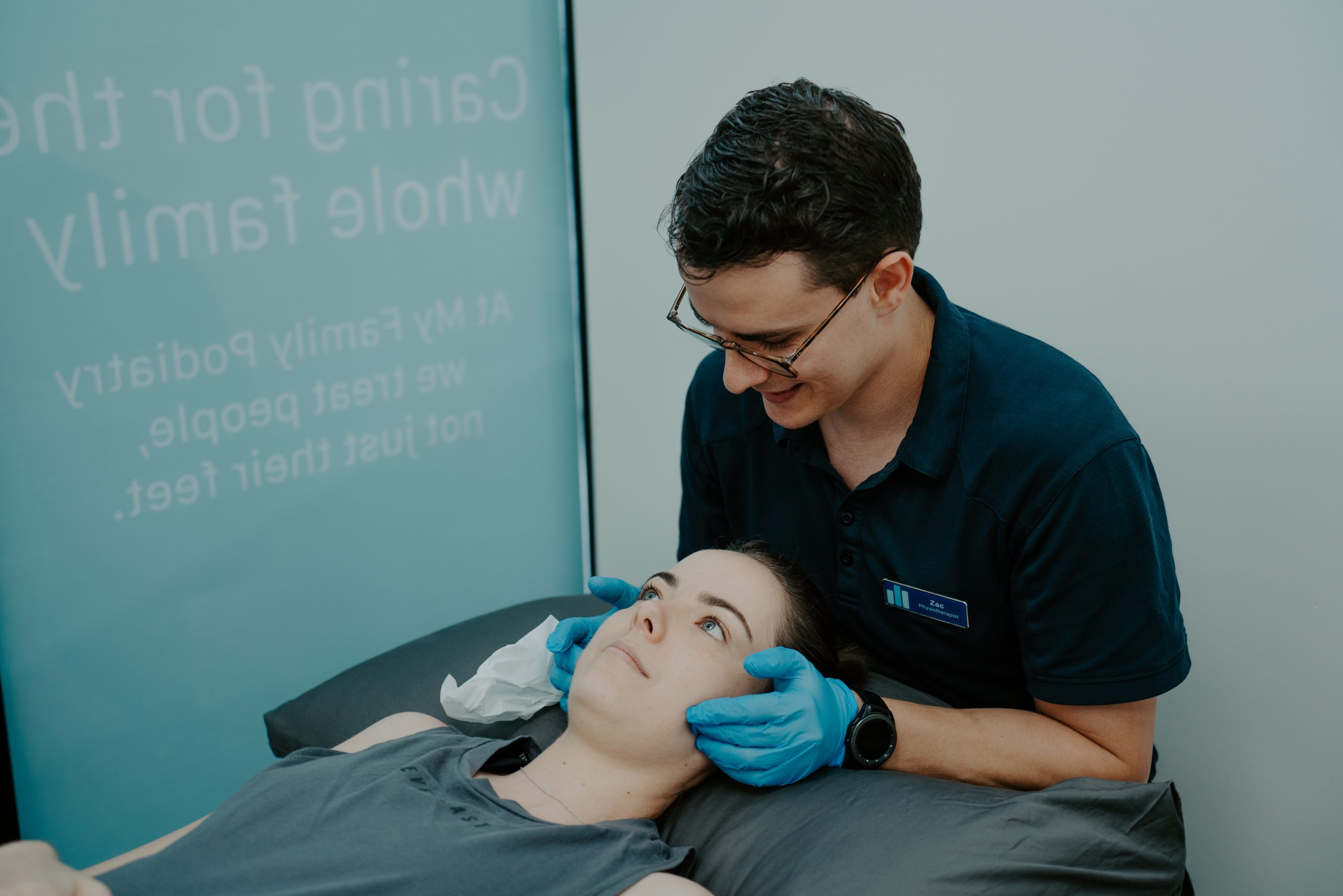Jaw Pain
The jaw is one of the most commonly used joints in the body, as we use it for activities such as eating, speaking, breathing, and even yawning. That's why jaw pain, or temporomandibular joint (TMJ) pain, can be debilitating to those that suffer from it!
TMJ is characterised commonly by pain localised to the cheek and jaw, or radiating up through the head and into the neck. Often, it can interfere with chewing, talking, and yawning, and can limit mouth opening.
Physiotherapy has been shown to be effective in the treatment of persistent TMJ pain. Our skilled physios can assess what the underlying causes of your pain are and how you can treat them effectively to restore the function of your jaw.


So what might indicate TMJ (jaw) is the cause of the pain?
- Difficulty opening the mouth wide
- Clicking or locking of the jaw
- Pain in the jaw, face, temples, teeth, ear or even (sometimes) the neck
- Teeth grinding (or bruxism)
- Headaches (predominantly in the temple area)
- Eating difficulties such as pain with chewing or swallowing
There are 3 main types of jaw pain:
- Myopathy-based pain (pain from the muscles around the face/neck and fascia)
- Athropathy joint pain (pain caused by an issue with the bones, disc and cartilage)
- Combination/complex pain: pain from both the muscles and the joint, and other contributing factors such as poor sleep, stress, neck problems, poor posture and more.
Often, it's a combination of myopathy and arthropathy that contribute to TMJ Pain. That's why, as part of the consultation at Three Pillar Health, we will perform a detailed assessment consisting of muscle and joint testing, a thorough case history/interview, and other manual tests to ensure that your treatment plan is designed to help your specific type of jaw pain and your individual contributing issues.

